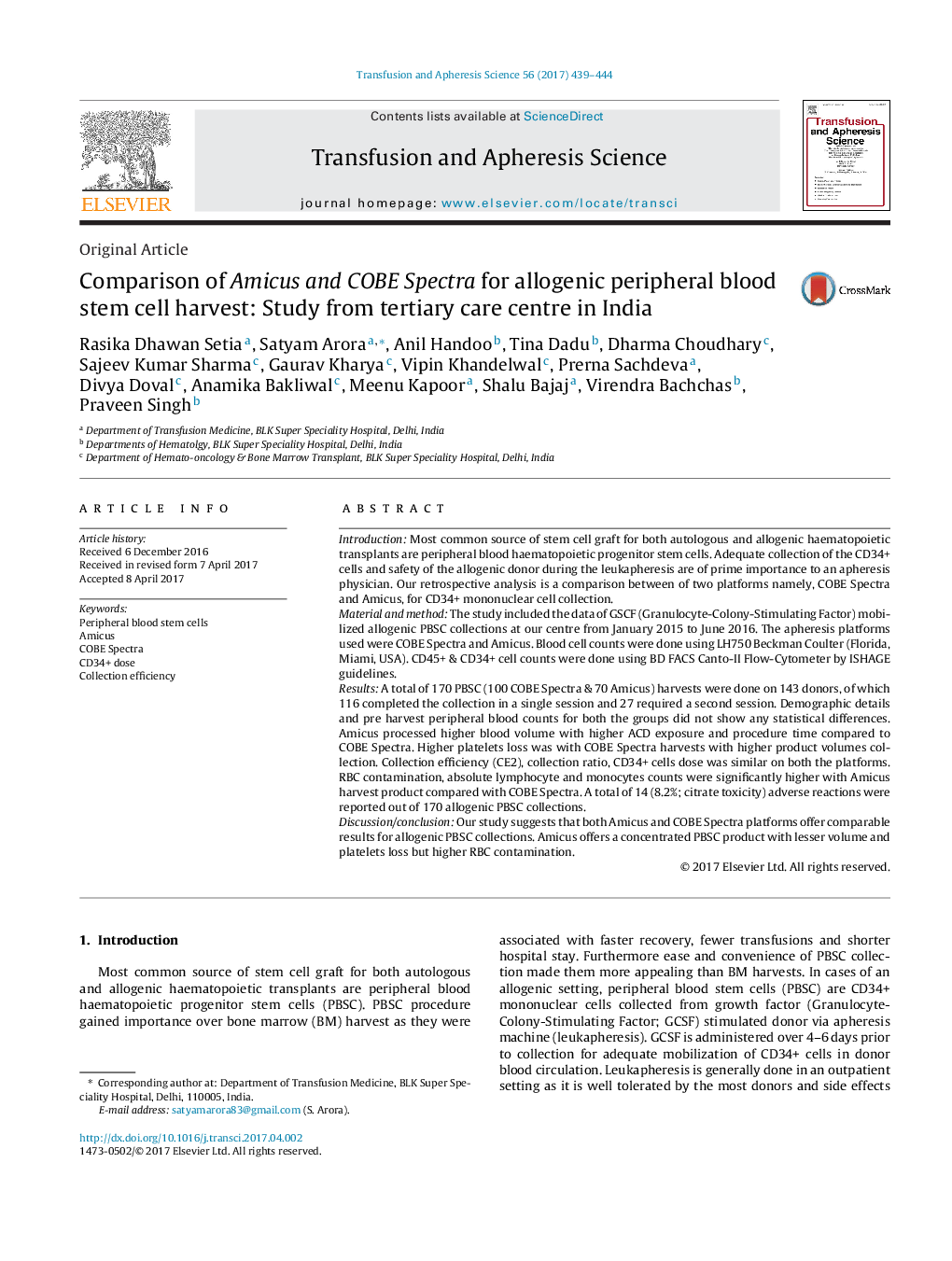| Article ID | Journal | Published Year | Pages | File Type |
|---|---|---|---|---|
| 5664657 | Transfusion and Apheresis Science | 2017 | 6 Pages |
IntroductionMost common source of stem cell graft for both autologous and allogenic haematopoietic transplants are peripheral blood haematopoietic progenitor stem cells. Adequate collection of the CD34+ cells and safety of the allogenic donor during the leukapheresis are of prime importance to an apheresis physician. Our retrospective analysis is a comparison between of two platforms namely, COBE Spectra and Amicus, for CD34+ mononuclear cell collection.Material and methodThe study included the data of GSCF (Granulocyte-Colony-Stimulating Factor) mobilized allogenic PBSC collections at our centre from January 2015 to June 2016. The apheresis platforms used were COBE Spectra and Amicus. Blood cell counts were done using LH750 Beckman Coulter (Florida, Miami, USA). CD45+ & CD34+ cell counts were done using BD FACS Canto-II Flow-Cytometer by ISHAGE guidelines.ResultsA total of 170 PBSC (100 COBE Spectra & 70 Amicus) harvests were done on 143 donors, of which 116 completed the collection in a single session and 27 required a second session. Demographic details and pre harvest peripheral blood counts for both the groups did not show any statistical differences. Amicus processed higher blood volume with higher ACD exposure and procedure time compared to COBE Spectra. Higher platelets loss was with COBE Spectra harvests with higher product volumes collection. Collection efficiency (CE2), collection ratio, CD34+ cells dose was similar on both the platforms. RBC contamination, absolute lymphocyte and monocytes counts were significantly higher with Amicus harvest product compared with COBE Spectra. A total of 14 (8.2%; citrate toxicity) adverse reactions were reported out of 170 allogenic PBSC collections.Discussion/conclusionOur study suggests that both Amicus and COBE Spectra platforms offer comparable results for allogenic PBSC collections. Amicus offers a concentrated PBSC product with lesser volume and platelets loss but higher RBC contamination.
